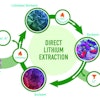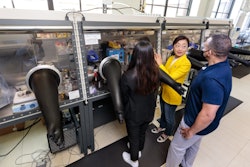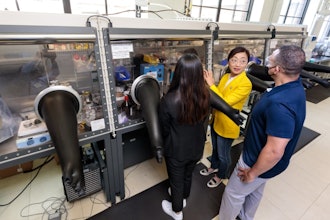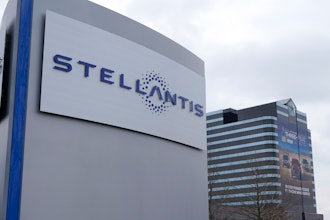INDIANAPOLIS (AP) -- Executives with a central Indiana biofuels company and conspirators in Evansville and New Jersey allegedly ran a biofuels scam that cost the government and investors more than $100 million — money federal authorities said Wednesday some of the defendants used to buy luxury cars, jewelry and casino trips.
Six people were arrested Wednesday morning following their indictments on conspiracy, wire fraud and other charges alleging they were involved in the sale of more than 35 million gallons of fuel as 100 percent biofuel when it actually contained some petroleum diesel.
U.S. Attorney Joe Hogsett said the scam allowed the participants to charge truck stops and service stations more for the fuel than it was worth while the government paid out renewable energy tax credits and other benefits that should not have been paid because the fuel was not pure.
He called the alleged scam the largest tax and securities fraud scheme in Indiana history.
Middletown, Ind.-based E-Biofuels allegedly began the scam when three of its executives arranged to purchase fuel known as B99 — or biofuel blended with a small amount of petroleum diesel — from two New Jersey companies and resold it with fake documentation as B100, or pure biofuel made from animal fats and vegetable oils.
Although E-Biofuels' Middletown plant was capable of producing pure biofuel, Hogsett said that plant was rarely in operation during the scam that allegedly ran from July 2009 to May 2012.
"The entire facility was used simply as a prop as the defendants purchased more and more fuel to fraudulently sell to more customers," he said.
Customers who purchased the fuel were defrauded of more than $55 million, Hogsett said, while the Internal Revenue Service suffered $35 million in losses from tax breaks and renewable energy credits that arose from the scam.
Three of E-Biofuels' executives, brothers Craig, Chad and Chris Ducey, were named in one of the two indictments, along with Joseph Furando and Evelyn Katirina Pattison. Furando and Pattison own New Jersey-based CIMA Green and Caravan Trading Co., the companies the fuel was purchased from.
Furando and Pattison appeared Wednesday in a federal court in New Jersey. Furando was released on home detention on $2 million bond and Pattison was released on a $250,000 bond, said U.S. Attorney's office spokesman Tim Horty.
The Ducey brothers appeared before a federal judge Wednesday for an initial hearing Wednesday in Indianapolis and were released, as was Jeffrey Wilson, the president and CEO of Evansville-based Imperial Petroleum, Horty said.
Imperial Petroleum acquired E-Biofuels in May 2010. Hogsett said Wilson is first CEO of a publicly traded company his office has indicted. E-Biofuels filed for bankruptcy last year.
The Securities and Exchange Commission filed a civil complaint Wednesday charging the company with taking part in a securities fraud and alleging that the scam cost company investors up to $60 million when Imperial Petroleum's stock price plunged after the scheme collapsed last year.
Bob Burson, assistant regional director of the SEC's Chicago office, said E-Biofuels' owners had falsely portrayed their plant during the sale as producing biofuels from soybean oil, chicken fat and other agricultural products,
Burson said Wilson eventually learned that truth about the plant but he "decided to continue the deception" that caused the company's stock price to crash 90 percent last year as the allegedly fraud unraveled. Wilson was indicted along with Craig Ducey in a second indictment.
Thomas Farlow, an attorney for Wilson, said Wednesday his client has been cooperating with the government but disagrees with its allegations. "We expect that he'll be exonerated," Farlow said.
Messages left Wednesday for attorneys for the five other defendants were not returned.
Burson said the SEC is seeking the "surrender of ill-gotten gains" and to impose civil penalties against the defendants.
Assistant U.S. Attorney Steve DeBrota said some of those ill-gotten gains included $395,000 that Furando spent on jewelry and $247,000 he spent to buy a Ferrari. Craig Ducey is accused of spending $30,000 on Las Vegas casino resorts.
"This was a massive fraud leading to massive benefits for the individuals with the companies," he said.






















